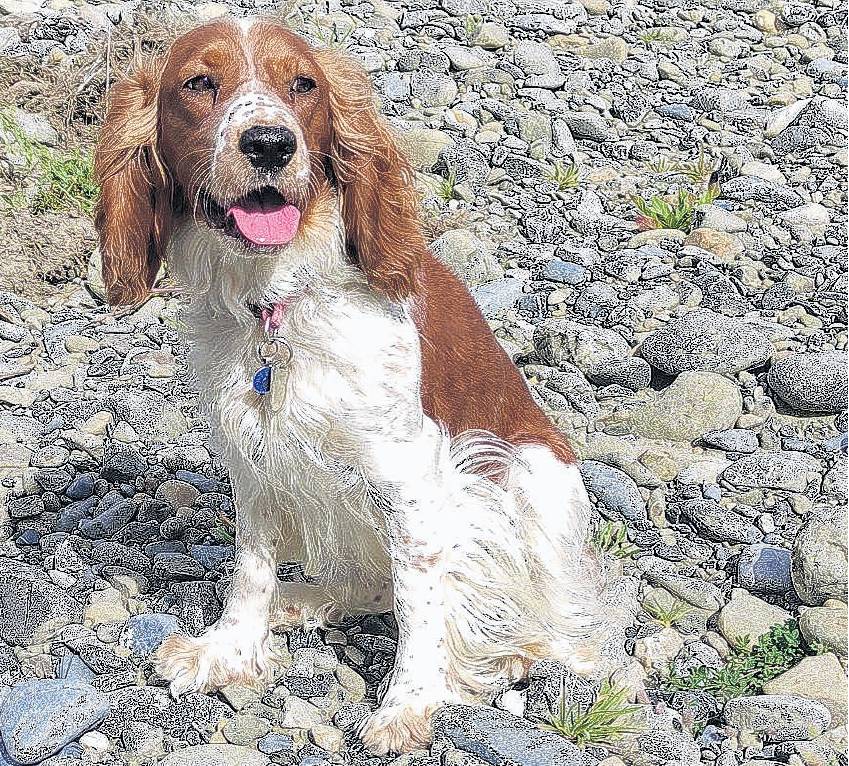
The young Welsh springer spaniel is proving her value as a rat catcher along the Ashley-Rakahuri River in the Waimakariri District, helping the survival of endangered birds.
Evie is owned by Ashley-Rakahuri Rivercare Group (ARRG) operations manager and photographer Grant Davey, and his wife Val.
The couple’s previous dog died a few months ago, and they decided to replace it with a rat detection dog to help with their rodent control work along the river.
"It has become obvious that we need to hunt the rats," Grant says.
"Putting out traps and expecting the rats to walk in, is insufficient."
Finding the rats is easy for Evie. The hard part is digging them out of their burrows, which are often a complex network of tunnels and chambers covered with debris.
Grant helps her, digging with a mattock, but consideration is now being given to smoking rats out as a better option.
Evie is helping locate rat colonies along the river, in "places where we can hit them hard and make a real difference", Grant says.
She is already on the right track towards achieving that goal by identifying a rat hotspot close to the Cones Road Bridge in Rangiora where a few pairs of rats' nests have been located.
Grant says trail cameras have shown Norway rats are the worst predators of the endangered bird’s eggs, and sometimes chicks, along the braided river.
But there is more, and more evidence, suggesting feral cats are also a serious danger.
ARRG has traps spaced at 100m intervals along each side of the river for about 13km, and another set that almost encircle the estuary.
During the nesting season traps are placed around and among blackfronted tern (tarapiroe) nests, and sometimes near wrybill (ngutu pare) nests.
About 80 Norway rats were caught last year, but despite this the rat problem continues.
During the last few years ARRG has hired professional dog handlers three times to visit the river with their rat detection dogs.
They proved their worth but it was clear that just a few days work each year was insufficient. A full-time rat detector dog was needed.
Grant and Val bought Evie from her breeder Billy Barton, a detection dog trainer of Wanaka and she has made an immediate impact.
"So far we have concentrated on the stretch of river between the Rangiora Airfield and railway bridge," Grant says.
"She systematically covers the ground and carefully sniffs around the piles of driftwood and logs that can be concealing rats.
"When there is an animal beneath this detritus, her behaviour makes this very clear — she gets very excited and digs.
"So far this has been at eight places and her work has resulted in the destruction of 15 Norway rats.
"Since we have had her, all our other trappers along the river have only caught a total of three."
Evie wears a GPS unit and training collar when she is working so she can be tracked and issued commands with beeps.
However, during the nesting season she will work on a leash.
By Shelley Topp














